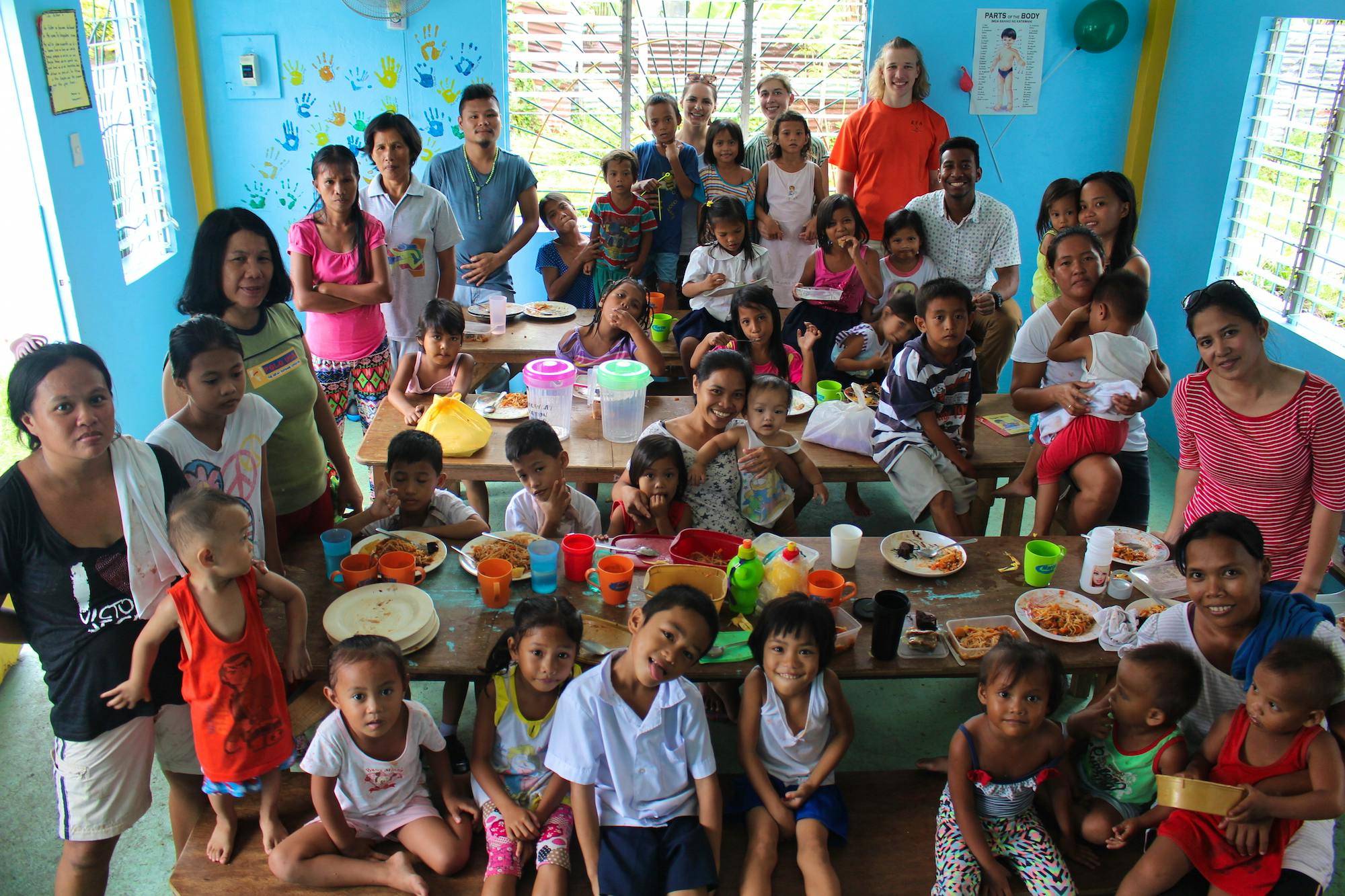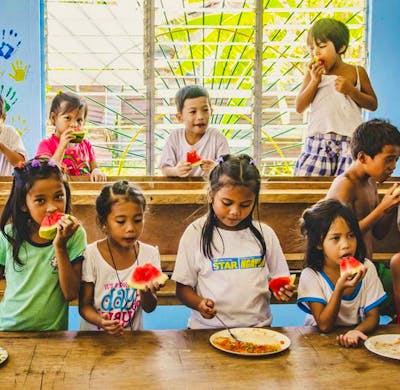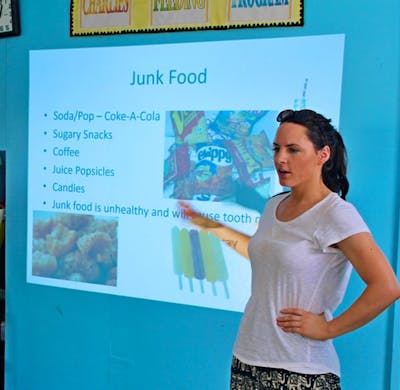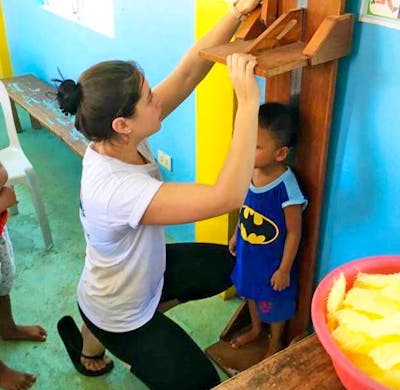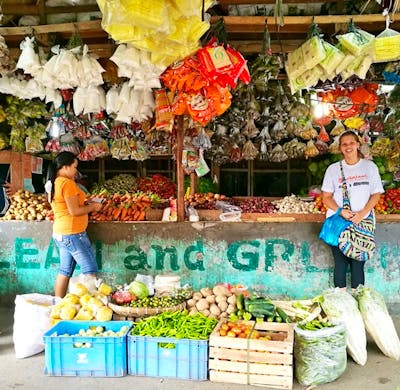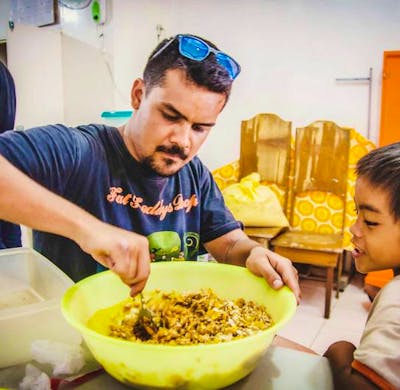Who We Are?
Volunteer for the Visayans (VFV), is a registered non-profit, non-government organization located in Tacloban City, Philippines. It is registered with the local Department of Social Welfare and Development (DSWD) to distribute planned and professional social welfare services to assist underprivileged and underserved local communities.
Since being founded in 2004, VFV has dedicated itself to contributing towards sustainable developments in the areas of child welfare, community development, education and public health through its broad based social welfare programs. In particular VFV has invested time and resources to develop a number of long term Community Projects as well as a comprehensive Child Sponsorship Program which combined have led to over 150 children from disadvantaged backgrounds to have the means to go to school and pursue mainstream education.
Year after year, VFV has been recruiting international volunteers to help provide energy, skills and support to a number of ongoing Volunteer and Community Projects whilst at the same time educating the volunteers on the unique people and culture of the Philippines.
Over the last decade, VFV has tailored its Volunteer Program to provide not only the best volunteer projects for those looking to volunteer in the Philippines but has also provided a program that includes some of the best methods of cultural immersion, allowing each volunteer to truly experience the one of a kind ‘Pinoy’ culture. Today, VFV still takes pride in providing one of the most unique volunteering and service based learning environments in the world.
Brief History
The origins of Volunteer for the Visayans (VFV) date back to the early 1990’s when U.S. volunteers from Jacksonville University, Florida led by Troy Peden traveled to Tacloban City in order to volunteer on a project known as Building Hope, which was the original precursor to Volunteer for the Visayans. The volunteers participated in a number of community development and social welfare projects, including the renovation and repair of Sagkahan National High School which had been damaged by a recent typhoon.
During their visits, Peden and his volunteers set foundations for the future by working closely with the Tacloban City Social Welfare and Development Office, building trust and creating a model which would serve as VFV’s underlying structure for years to come.
The volunteers continued to return on their own each year, and in 2004 were instrumental in establishing the Volunteers for the Visayans as a non-profit organisation. With support from the GoAbroad Foundation Peden provided a gateway of financial support which slowly enabled VFV to develop the resources needed to become a successful on-ground NGO. With every year that passed, VFV strived to reach out and improve the lives of communities and individuals in a manner that was responsible and sustainable; this led to a number of projects developing under VFV’s three core programs - the Volunteer Program, Sponsorship Program and Community Program. It is the combination of these three core programs that makes Volunteer for the Visayans a successful, broad-based social welfare organization.
Where We Work
VFV is based in Tacloban City on the island of Leyte in Eastern Visayas. Tacloban is approximately 360 miles south-west of Manila and is well-known as the site of U.S. General Douglas MacArthur’s Leyte Gulf Landing, which marked the start of a fierce campaign to regain the Philippines from Japan during World War II.
Tacloban is also the site of the prestigious San Juanico Bridge, which is the longest bridge in the Philippines. This bridge connects the islands of Leyte and Samar, and is a key link in the Pan-Philippines Highway, which connects the Philippines islands of Luzon, Samar, Leyte, and Mindanao through a network of roadways, bridges and ferries.
Tacloban is the capital of the Province of Leyte and has a population of about 218,00 people. The city offers international volunteers an opportunity to be immersed in a unique Asian culture, which is at least partially left untouched by Western Culture, especially in the rural areas. In November 2013, Tacloban was one of the most devastated areas of the Philippines when Super Typhoon Yolanda (Haiyan) ravaged through the Philippines; therefore, the city and surrounding areas now present an even greater range of opportunities for international volunteers.
In addition to servicing Tacloban City, VFV has a community center near the local dumpsite in the Barangay of Sto. Nino and a community center in the rural village of Cangumbang, Palo.
Why choose us?
There are many organizations that offer volunteer-abroad placements in a multitude of countries. Selecting the right program is an important decision for you to make. Here are the reasons why Volunteer for the Visayans may be your best choice for Volunteering Abroad in the Philippines.
We understand that poverty in our community cannot be alleviated just through hand-outs. We also recognize that there are national issues, including a depressed national economy, low wages, large families, and an unequal distribution of income, that we are unable to address at our level. What we can and are doing at our grass-roots level, is to identify individual and community needs and to establish programs to address these needs. We actively collaborate with other community organizations and local government agencies. We strive to provide comprehensive, multifaceted services that address all aspects of poverty. Despite the recent affects of Typhoon Yolanda (Haiyan), the landscape surrounding our work has changed very little, other than there being a much greater need from the communities we work in than there ever was before. As a result, our grassroots services continue to strive to bring hope and rehabilitation to more than 200 families in Leyte.
Who are we looking for?
Diversity makes us a stronger program as everyone has unique life experiences and backgrounds that we can draw on. Volunteers, of course, should have a strong desire to help others and should be healthy enough to perform the required project tasks. Personal traits that are needed include the following:
Adaptability: Living standards in the Philippines are much lower than what you have been accustomed to. (However, Filipinos are known for their hospitality and will provide a guest with the best of everything they have in their home.) Individuals who wish to Volunteer in the Philippines, must be able to adapt to new living environments.
Sensitivity: Your values and expectations may be markedly different (due to cultural and socioeconomic differences) from those you will work with. A lack of awareness and sensitivity to this will offend those you interact with. Volunteers must be sensitive and open minded to Filipino culture. (There is reference material on the internet that will help you understand Filipino culture and traits.)
Perseverance: The volunteer project you are assigned to may lack basic supplies. Our rural schools are poorly funded and classrooms typically lack basic supplies. (While VFV does its best to solicit donations for these schools, funds are limited.) Some of our orphanages are overcrowded and understaffed. Creativity to find a solution and persistence to carry on are needed.
People volunteer because they have a strong desire to help those in need, and generally seek to volunteer in a foreign country for specific reasons, such a desire for a cultural immersion experience, to gain real life experiences during a “gap year,” or to gain experience in their career field. Whatever your reasons are for volunteering, we believe that we can provide you with a placement that will meet your needs."
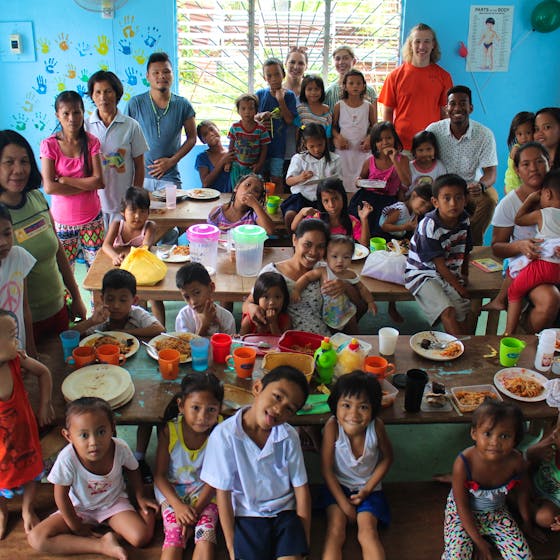
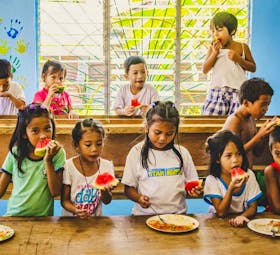

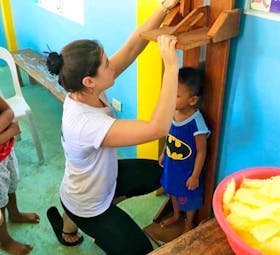
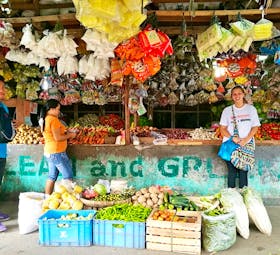

 5
5

